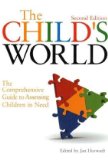Personality Growth and Career Success
December 2020 - The first study to assess the predictive power of personality changes for a broad range of career outcomes across more than a decade of young adulthood has been published in Psychological Science.
The 12-year longitudinal study looked at how important personality changes during young adulthood showed that personality growth had real-world career benefits. The findings indicated that young people who developed higher levels of conscientiousness and emotional stability during their transition to employment tended to be more successful in a number of ways during their early careers.
Researcher Kevin Hoff, assistant professor of industrial-organizational psychology at the University of Houston said:
"Results revealed that certain patterns of personality growth predicted career outcomes over and above adolescent personality and ability."
He argued that the findings support potential policy initiatives intended to help young people develop personality-based skills. There were also benefits for adolescents who experienced difficulties or were dissatisfied with aspects of their personality.
According to Kevin Hoff:
"The study showed you're not just stuck with your personality traits, and if you change over time in positive ways, that can have a big impact on your career."
Sif Einarsdóttir, University of Iceland; Chu Chu, Daniel Briley and James Rounds, University of Illinois at Urbana-Champaign collaborated in the study.
The researchers tracked two representative samples in Iceland for around 12 years, from late adolescence (about 17 years old) to young adulthood (about 29 years old). They found that subjects who developed higher trait levels achieved greater success as young adults. In both samples the strongest effects for growth were seen in conscientiousness, emotional stability and extraversion. In particular:
- Conscientiousness changes predicted career satisfaction
- Emotional stability changes related closely to income and career satisfaction
- Extraversion changes were linked to career and job satisfaction/li>
Kevin Hoff said that, given the focus on personality changes as predictors, it was important to include a replication sample and data from more than two time points. Data from three and five time points were used.
Kevin Hoff concluded:
"Adolescent trait levels also predicted career success, highlighting the long-term predictive power of personality. Overall, the findings highlight the importance of personality development throughout childhood, adolescence and young adulthood for promoting different aspects of career success."
Child personality predicts adult behaviour
(Previous article) Personality traits observed in childhood are a strong predictor of adult behavior according to research from the the University of California, Riverside, the Oregon Research Institute and University of Oregon to be published in Social Psychological and Personality Science in 2010.
The researchers drew on data from a study of approximately 2400 ethnically diverse elementary school students in Hawaii in the 1960s, comparing personality ratings by teachers at the time with videotaped interviews of 144 of those individuals forty years later.
Lead author and doctoral candidate Christopher S. Nave explained:
"We remain recognisably the same person. This speaks to the importance of understanding personality because it does follow us wherever we go across time and contexts."
The researchers examined four personality attributes:
- verbally fluent
- adaptable
- impulsive
- self-minimising
Students who had been identified as verbally fluent (defined as unrestrained talkativeness) tended in middle age to be interested in intellectual matters, speak fluently, try to control the situation, and demonstrate a high degree of intelligence. Those who had been rated low tended to seek advice, give up when faced with challenges, and exhibit 'an awkward interpersonal style'.
Students who had been rated as highly adaptable (defined as coping easily and successfully with new situations) tended, in adulthood, to behave cheerfully, speak fluently and show interest in intellectual matters. Those who had been rated low tended to say negative things about themselves, seek advice and exhibit an awkward interpersonal style.
Students who had been rated as impulsive tended, as adults, to speak loudly, display a wide range of interests and be talkative.
Those who had been rated low tended to demonstrate fear or timidity, expressing insecurity and maintaining a distance from others.
Students who had been rated as having a tendency to self-minimise (defined as humble, minimising their own importance or never showing off ) were likely to express guilt, seek reassurance, say negative things about themselves and express insecurity as adults. Those ranked low tended to speak loudly, show interest in intellectual matters and exhibit condescending behavior.
Christopher S. Nave commented:
"We think that personality resides within us. Itís a part of us, a part of our biology. Life events still influence our behaviors, yet we must acknowledge the power of personality in understanding future behavior as well."
More Psychology Articles
 The Child's World: The Comprehensive Guide to Assessing Children in Need At-risk Youth: A Comprehensive Response for Counselors, Teachers, Psychologists and Human Services Professionals |